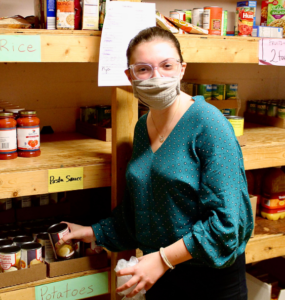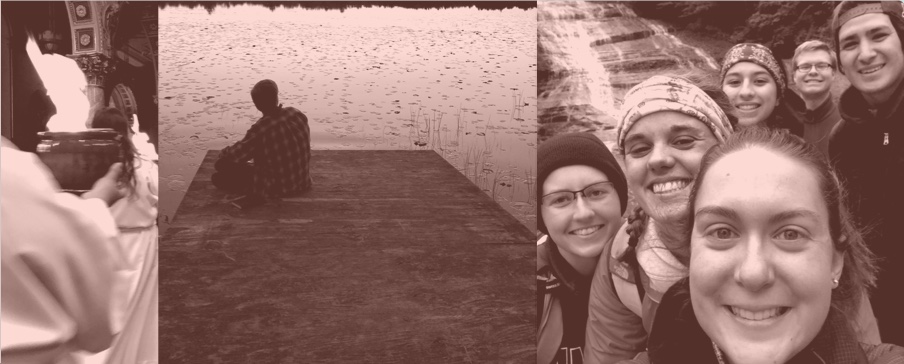Faith and Patience

My day begins at 8 am when I leave to carpool to work with my housemate Katie. We listen to news broadcasts and navigate downtown construction zones as she drops me off at 8:15 at Emergency Services in the heart of downtown before heading to her job. Early morning at my work is one of my favorite times- I’m usually the first one at the office and I get to open everything up and take inventory of what needs to get done that day. A couple days a week my mornings are very busy with our food pantry, so I run around getting food stocked and greeting the volunteers who have amazingly continued to help out during the pandemic. Then I spend my morning doing client intake through the window to protect social distance or helping to prepare bags to pass out to them. After pantry or on days when our pantry is closed, I get to spend my day doing casework. I talk on the phone with everyone who calls us for emergency services, and I listen to their stories and work to find them assistance. Sometimes this means a referral and a call to a peer at another agency; sometimes the client is eligible for one of our programs and I get to do intake and establish a case for them. I also have opportunities to take on some of these cases as a caseworker and manage them throughout their application process for financial assistance. I also get the opportunity to assist on other tasks and learn about the complexity of the agency’s financial and legal obligations: helping to put together statistical reports for grant applications or reviewing completed cases before an audit brings to life the connection between the individual cases that I hear on the phone and the larger network of organizations, initiatives, and government policies working to combat poverty and financial crisis.
I never know what to expect when I walk into work each morning. With a job that includes “Emergency” in the title, crisis and unexpected needs should be expected, but I’m still adjusting to it. It’s hard to realize in the middle of your day how much will be left unfinished when you leave, how many people will have to wait another day for help, and even harder to leave work and know how many people you had to deny or defer help to for whatever reason. These low moments happen every day, and it has taken a lot of faith and patience to accept that only so much can be done in a day. Before I started this job I got advice from someone who works in medicine that the only way to get through being an ‘essential worker’ is to leave work at work, find a way to close the door on each day’s problems and take time to recharge. Otherwise, you will never maintain enough energy to do what can be done the next day. This advice was invaluable during my first weeks on the job as I saw how much needed to be done, and the practice of patience has become key to dealing with the unexpected. It’s key because if I were to rest on the fear of the lows, the fear of dealing with a client’s crisis, I would never experience the high of being able to solve a crisis, to get done what I can in the day and offer help to someone. If I allow myself to be exhausted by dwelling on the client I couldn’t help, I will have no energy to take on the responsibility of the next complex case on my desk. Each case being unique, some will become difficult and unsolvable, but some will suddenly come together into resolution and pay off the hard work. Even some of the cases that do remain unfinished each day will be highs in their own way, because they will have included unique moments of connection with the clients, moments of understanding how a step that seemed bureaucratic actually helps a case become manageable. Very few days end in neat completion, but I am learning to live within the messiness: to direct the adrenaline of a crisis into efficiently managing it, to appreciate and pray for the patience I need when it cannot be managed.
Categories: General
← Back to Stories

